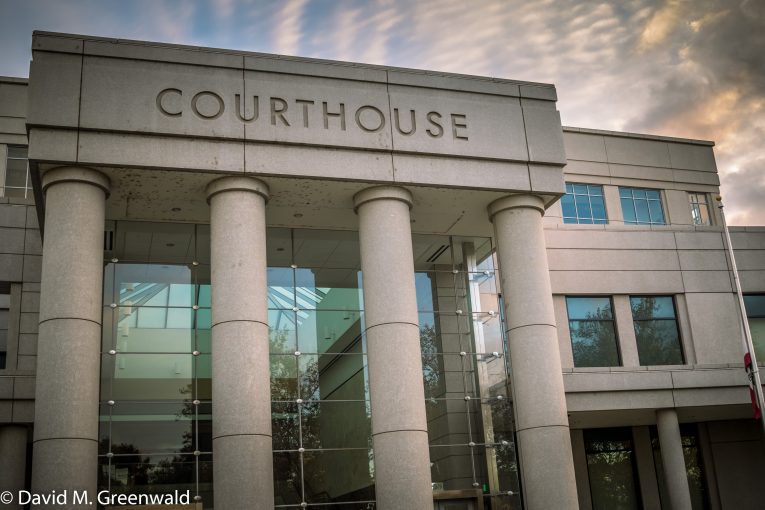

By Miles Davis
Woodland – A homeless parolee was arrested in a park in Woodland for allegedly rendering his GPS device inoperable by not charging the device.
In August of 2019, Jeramie Allen Newby was found asleep in Woodland Memorial Park and arrested due to his GPS device’s battery being run down. His parole officer, Officer Jenkins, testified on the events using information from a Veriprox Monitoring System phone call following the event. His testimony received continuing objections from the defense that the testimony was double hearsay, lacked foundation, and lacked personal knowledge about the events, which the court overruled at the moment.
“I was informed that Mr. [Jeramie] Newby’s location device had gone to low battery,” Officer Jenkins claimed, receiving objections that this statement was hearsay.
Officer Jenkins claimed the defendant’s last known whereabouts corresponded with his known transient location at the memorial park in Woodland. From 7:15 a.m. to 5:23 p.m., the GPS device was allegedly low battery. He testified Fair Tracks Monitoring system indicated a loss of battery life at his last known location at the park after he returned from a nearby Walmart. When the officers arrived on the scene at 5:23 p.m. to arrest the defendant, Mr. Newby was found asleep where his device was last recorded.
The prosecution shared with the court the conditions of parole, which begged the question of whether or not the defendant knowingly rendered his location device inoperable by failing to charge his  device. Mr. Newby’s last charge on Aug. 2, 2019, was shown in his Fair Tracks Monitoring Enrollee Event report.
device. Mr. Newby’s last charge on Aug. 2, 2019, was shown in his Fair Tracks Monitoring Enrollee Event report.
According to Officer Jenkins, however, any person required to have an affixed-GPS device as part of parole should not “knowingly” circumvent the operation of the device. The defense also made the argument that homeless parolees are instructed to charge their GPS device through public spaces like Starbucks, Taco Bell, or the Woodland Public Library. Instructions like these, the defense emphasized, were unrealistic and often reach beyond the parolee’s capabilities, creating extenuating circumstances.
The defense pointed out the impediment on homeless parolees’ ability to find establishments that allow them to charge their devices based on the limited hours, difficulties for transient individuals in professional environments, and, most importantly, the multiple reports of 911 calls from the public establishments listed by the defense requesting that the homeless be removed from their establishment because of transients presenting a threatening or discouraging nature to customers.
The judge acknowledged the defense’s argument that charging options for homeless individuals are non-existent outside of normal business hours, meaning that if a homeless individual whose battery went out during the middle of the night would have no access to facilities or the ability to charge his device. Among many other clear and compelling indications of proof beyond a reasonable doubt, namely his lack of a registered address as a transient, the court instructed to end the hearing for the day until further supporting documents of due process precedence are retrieved from the prosecution.
The court therefore ruled that the violation of parole hearing will resume at 10:30 a.m. the following morning in Department 10, considering whether a violation of rendering a GPS inoperable requires a “state of mind” that knowingly disabled the device.


Scary. None of those are required to provide charging services to anyone.
Edit needed?